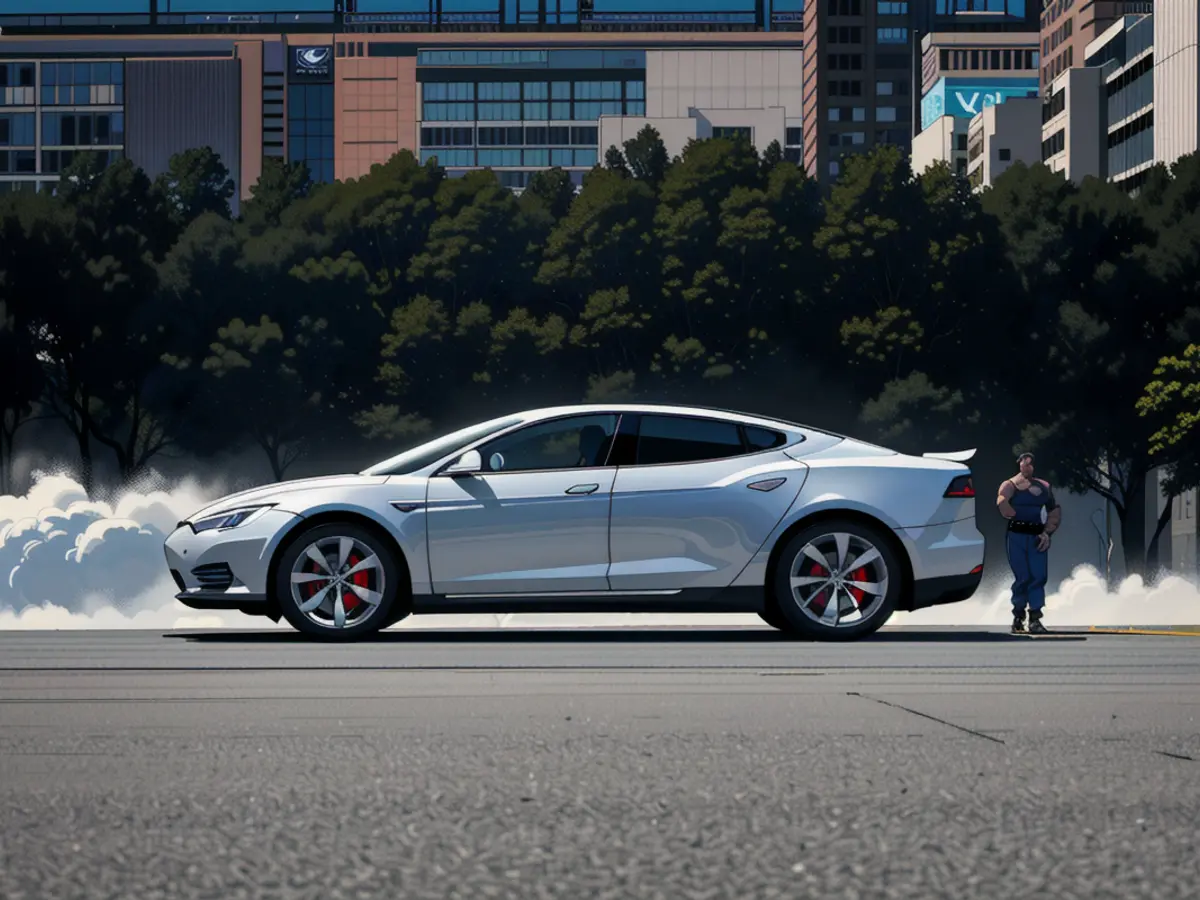Should Tesla Shares be Purchased for 2025 Consideration?
The shares of electric vehicle manufacturer Tesla (TSLA) have experienced a significant surge in 2024, climbing over 70%, surpassing the 25% increase observed in the S&P 500 during the same period. This impressive growth has ignited a wave of enthusiasm surrounding the stock. Contributing to the positive sentiment is Tesla CEO Elon Musk's public support of President-elect Donald Trump, along with the company's position as a key player in the advancement of artificial intelligence, particularly in the development of autonomous driving technology and robots.
However, one must consider whether the stock's recent surge represents hype or substance. Regardless of a company's strength, its stock can become overvalued when investor expectations become excessively optimistic.
The optimistic perspective
From a financial standpoint, Tesla's business is in good shape. The company is no longer in the red; in fact, it's generating substantial profit, with free cash flow reaching over $2.7 billion in its latest quarter, marking a 233% increase year over year. This substantial cash flow has boosted Tesla's total cash and investments to approximately $33.6 billion.
This financial stability, coupled with a hopeful outlook for Tesla's AI software and hardware, paves the way for an optimistic stance on the stock. Investors anticipate that Tesla's advancements in AI will foster an autonomous network of Tesla vehicles, opening up a potential Uber-style revenue stream. Furthermore, they expect a continued surge in electric car, energy storage, and solar product sales. Additionally, there is optimism that Tesla can monetize its humanoid robots.
The pessimistic viewpoint
While the optimistic outlook on Tesla stock is intriguing, some analysts strike a more cautious tone. Shares already trade at a hefty price-to-earnings ratio of around 118. Such a valuation leaves little wiggle room for potential setbacks, regardless of their origin.
Beyond this, Tesla's auto sales have stalled lately, attributed to high interest rates that have restricted consumer borrowing power. Tesla's automotive revenue experienced a mere 2% increase in Q3, a lackluster growth considering the stock's current valuation. Moreover, it's worth noting that while Tesla has diversified its business, it remains primarily an automaker. Automotive sales accounted for about 79% of its total sales in Q3. Therefore, as long as higher interest rates hinder consumer's ability to afford vehicles, Tesla may face continued slow growth in revenue.
Await a correction
Given all this, even though Tesla is a promising company with an exciting future, it may be wise to sit on the sidelines after the stock's significant surge. If the shares experience a significant correction at some point in 2025, they could represent a compelling investment opportunity. Tesla has a track record of strong growth and exceptional execution, making it a solid play in the attractive markets of electric vehicles and artificial intelligence.
In summary, while Tesla's business and technological advancements are noteworthy, the stock's current valuation leaves little room for error. Analysts are divided on whether there's excessive hype around the stock or if Tesla's future growth potential justifies the current price. As a result, it might be prudent to wait for a potential correction before making an investment decision.
Investors who believe in Tesla's continued growth may see this as an opportunity to invest more money into the company, given its strength in the finance sector and promising advancements in artificial intelligence. The company's substantial profit and free cash flow, as well as its potential revenue streams from autonomous driving technology and electric vehicle sales, contribute to this optimistic viewpoint.
On the other hand, some analysts advise caution due to the stock's high price-to-earnings ratio, which leaves little room for potential setbacks. Tesla's reliance on automotive sales, coupled with the impact of high interest rates on consumer borrowing power, could lead to slow growth in revenue. Therefore, these analysts suggest waiting for a possible correction in the stock's price before considering an investment.





